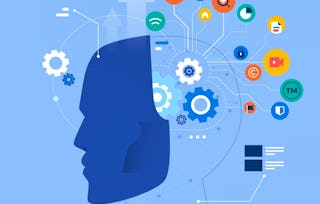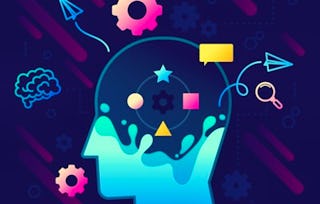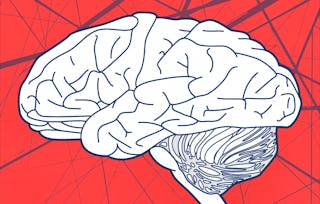How do we make decisions as consumers? What do we pay attention to, and how do our initial responses predict our final choices? To what extent are these processes unconscious and cannot be reflected in overt reports? This course will provide you with an introduction to some of the most basic methods in the emerging fields of consumer neuroscience and neuromarketing. You will learn about the methods employed and what they mean. You will learn about the basic brain mechanisms in consumer choice, and how to stay updated on these topics. The course will give an overview of the current and future uses of neuroscience in business.

An Introduction to Consumer Neuroscience & Neuromarketing

An Introduction to Consumer Neuroscience & Neuromarketing

Instructor: Thomas Zoëga Ramsøy
210,990 already enrolled
Included with
3,521 reviews
Skills you'll gain
Details to know

Add to your LinkedIn profile
See how employees at top companies are mastering in-demand skills

There are 6 modules in this course
We first need to define the field – what are the key concepts, what are the key methods and reasons for employing neuroscience to study consumers and communication effects? In this module, we will introduce the topic and how some specific studies provide key insights into what neuroscience has to offer in relationship with more traditional methods.
What's included
4 videos2 readings1 assignment
In the second module of this course we are turning to the functions of the brain, and we will first focus on attention and consciousness. This module will focus on some key concepts in attention and consciousness.
What's included
4 videos1 reading1 assignment
In this module we will have contents filled on the topic of sensory neuromarketing. How are our senses affected differently as consumers? What can you do to organise your communications to better use all the senses? How does the brain actually use the senses? What tools do we have for assessing the use of senses, and how they affect consumers?
What's included
5 videos1 reading1 assignment
In this module, everything is about emotions and feelings, and the relationship between emotions and preference. As we will see, our minds have a dual side: a conscious and an unconscious response and motivation, which are crucial to understanding consumer preference and choice. Indeed, unconscious emotional responses may turn out to be driving consumer choice to the same - or even larger - degree than conscious feelings. Are conscious feelings a mere after-the-fact rationalization upon conscious choice?
What's included
4 videos1 reading1 assignment
This module will focus on Learning & Memory. We will determine not only that there are multiple kinds of memory, but that they also serve multiple purposes. If anything, learning is the vehicle we need to understand the most in consumer behaviour. What causes memory, and can we be affected unconsciously by our memories? How can we measure memory effects, and what is the relationship between brand equity and the brain? This module, we also have an interview with Prof. Richard Silberstein, who shares his view on neuromarketing and consumer neuroscience. Prof. Silberstein is the Founder and chairman of the neuromarketing company Neuro-Insight (http://www.neuro-insight.com/).
What's included
3 videos1 reading1 assignment
This module, we will focus on both the ethics of neuromarketing, as well as aberrant consumer behaviours. We see that consumer choice can sometimes become the centre focus on a person's life, be it pathological gambling, "shopaholism" or digital dependencies. This module, we will focus on some of these issues, and combine them with the ethical aspects that we face when talking neuro. This module we also end off with two interviews: one with Prof. Jan Trzaskowksi at the CBS, who is working on marketing and the law, where we discuss what the ethical and legal aspects of neuromarketing is. As you will see, Jan has a very particular take on this that I am sure you will find interesting. Our second interview is with Carl Marci, who is the Co-Founder and Chief Science Officer of Innerscope Research (http://innerscoperesearch.com/) on his background and their take on neuromarketing and consumer neuroscience.
What's included
4 videos1 reading1 peer review
Instructor

Offered by
Explore more from Leadership and Management
 Status: Free Trial
Status: Free TrialJohns Hopkins University
 Status: Free Trial
Status: Free TrialJohns Hopkins University

Copenhagen Business School
 Status: Free Trial
Status: Free TrialJohns Hopkins University
Why people choose Coursera for their career

Felipe M.

Jennifer J.

Larry W.

Chaitanya A.
Learner reviews
- 5 stars
74.60%
- 4 stars
20.16%
- 3 stars
3.55%
- 2 stars
1.07%
- 1 star
0.59%
Showing 3 of 3521
Reviewed on Nov 21, 2019
Very interesting and detailed study of consumer behavior. The concepts were understandable and many new things, methods and concepts were explained in this course. It was really helpful.
Reviewed on Mar 30, 2020
Thomas has the rare ability to explain the difficult concepts in relatively simple terms. I think that this course provides a good introduction on consumer neuroscience for beginners.
Reviewed on Sep 9, 2017
Good coverage of the different areas and state of the art of neuroscience. Great examples and presentation of studies allow students to link to scientific concepts to daily pratice.

Open new doors with Coursera Plus
Unlimited access to 10,000+ world-class courses, hands-on projects, and job-ready certificate programs - all included in your subscription
Advance your career with an online degree
Earn a degree from world-class universities - 100% online
Join over 3,400 global companies that choose Coursera for Business
Upskill your employees to excel in the digital economy
Frequently asked questions
To access the course materials, assignments and to earn a Certificate, you will need to purchase the Certificate experience when you enroll in a course. You can try a Free Trial instead, or apply for Financial Aid. The course may offer 'Full Course, No Certificate' instead. This option lets you see all course materials, submit required assessments, and get a final grade. This also means that you will not be able to purchase a Certificate experience.
When you purchase a Certificate you get access to all course materials, including graded assignments. Upon completing the course, your electronic Certificate will be added to your Accomplishments page - from there, you can print your Certificate or add it to your LinkedIn profile.
Yes. In select learning programs, you can apply for financial aid or a scholarship if you can’t afford the enrollment fee. If fin aid or scholarship is available for your learning program selection, you’ll find a link to apply on the description page.
More questions
Financial aid available,
¹ Some assignments in this course are AI-graded. For these assignments, your data will be used in accordance with Coursera's Privacy Notice.

